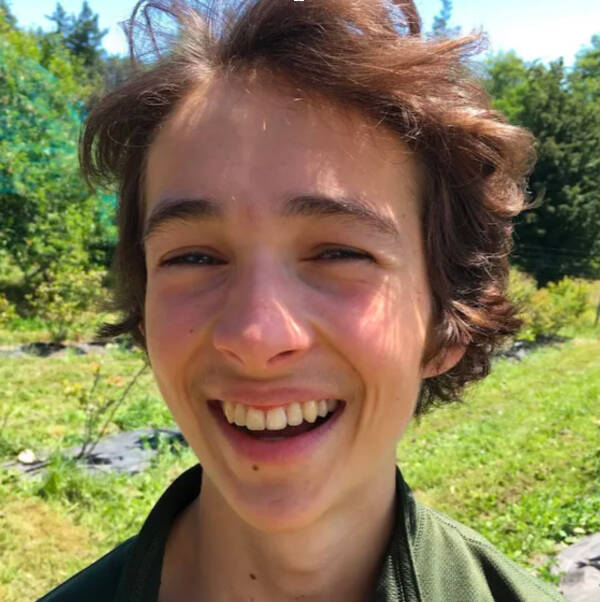In his speech for the graduating class of 2005 at Kenyon College, author David Foster Wallace used a parable of three fishes to describe our human tendency to become numb to our surroundings.
The story goes like this: two young fish happen to meet an older fish swimming the other way, who nods at them and says “Morning, boys. How’s the water?” The two young fish swim on for a bit, and then eventually one of them looks over at the other and says, “What the hell is water?”
This story describes an important lesson: sometimes the most obvious realities are hidden in plain sight. While Foster Wallace uses this story to provide some advice on how to live a meaningful life, I like to compare it to how it feels to return back to Vashon after growing up here.
Namely, Vashonites can seem like fish in the water, who sometimes forget what makes their home distinct from other places. Coming home to Vashon, after being away, I see that more clearly.
Since graduating from Vashon High School in 2017, I’ve been making my way further and further east; first spending four years at a small liberal arts college in the Midwest, and now currently living in New England.
Regardless of where I am, my landlocked friends and neighbors are always most surprised that my island hometown has no bridge to the mainland, and that we rely on ferries to connect us with the rest of the world.
For islanders, the ferry isn’t only a cultural linchpin, but increasingly, more of a hurdle to accessing life off the rock. This element of our island life plays such an integral role in establishing the milieu of Vashon — the “water” that the citizens of Vashon all swim around in.
Whenever I try to describe Vashon to those who’ve never experienced it, I always come around to the role of the ferries, and their role in the culture of the island. This is how we can live so close to a vibrant city, yet still have quiet forests and somehow avoid succumbing to being suburban.
The physical disconnect from “over town,” as islanders like to say, is certainly a pain when running errands or trying to make plans with our mainland brethren, but it also provides the essential character of our place.
Because we are separated from others by Puget Sound, we are freer to connect with each other in many ways, as well as set our own definitions for what a community can look, act, and be like.
As a fairly newly-minted denizen of the landlocked world, I’d like to remind Vashonites that contending with ferries is something not many communities have to face — and it plays an undeniable role in so many factors of what I’ve always loved about this place.
But as I have returned back home from time to time over the past couple of years for holidays, I’ve noticed how issues surrounding ferries have intensified. The dreaded two-boat schedule, which used to be an occasional inconvenience, has become the norm. May that norm change, and soon.
Thanks to The Beachcomber, I’ve been able to keep up with serious challenges that the ferries have been facing, including staffing woes and an aging fleet, while I’ve been away.
These issues have had a huge impact on the culture of Vashon.
Unlike most other communities, Vashon requires a vibrant and thriving ferry system to provide not only an efficient thoroughfare for islanders — but perhaps more importantly, to make possible the mindset that allows Vashon to be Vashon.
So, “how’s the water?” It’s okay, but it could be better, with a three-boat system.
Isaac Hughes, the son of Beachcomber editor Elizabeth Shepherd, is a former islander who currently works on an organic farm just outside of Boston.



